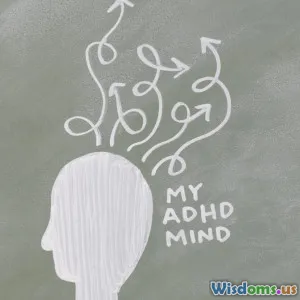
Die Verbindung zwischen Schlaf und Kreativität
(The Connection Between Sleep and Creativity)
5 Minute gelesen Entdecken Sie, wie Schlaf die Kreativität fördert und die Wissenschaft des Träumens, die Einblicke in die Steigerung Ihres innovativen Potenzials bietet. (0 Bewertungen)
Die Verbindung Zwischen Schlaf und Kreativität
Throughout history, sleep has been a subject of fascination, often seen as a mere necessity for physical restoration. However, recent research reveals that sleep, particularly its dream-laden phases, plays a critical role in enhancing creativity and innovative thinking. In this article, we’ll explore the profound connection between sleep and creativity, delving into brain science to understand how our nightly slumber can unlock our creative potential.
The Science of Sleep: An Overview
Before we delve into creativity, it’s essential to understand the stages of sleep. Sleep is divided into two main types: Non-Rapid Eye Movement (NREM) and Rapid Eye Movement (REM) sleep.
- NREM Sleep: This phase consists of three stages, each progressively deeper. During NREM, the body undergoes physical repair, and memories from the day are consolidated.
- REM Sleep: Characterized by rapid eye movement, this stage often involves vivid dreaming. It’s during REM sleep that the brain is highly active, and many researchers believe that this is where the magic of creativity happens.
How Sleep Fuels Creativity
1. Problem-Solving and Insight
Studies have shown that individuals who get adequate sleep are better at solving problems. One notable study from the University of California, San Diego, found that participants who slept after learning a task performed better than those who stayed awake. The researchers concluded that sleep allows the brain to process information and form new connections, facilitating insight and innovative thinking.
2. Dreaming and Creative Thinking
Dreams often present bizarre scenarios and unexpected connections between unrelated concepts. This unique aspect of dreaming can lead to creative breakthroughs. The surreal nature of dreams encourages the brain to think outside the box, allowing us to approach problems from angles we might not consider while awake. For instance, numerous artists and inventors have credited their dreams with inspiring their most famous works.
3. The Role of REM Sleep
REM sleep is crucial for emotional regulation and creative thinking. During REM, the brain processes emotions and integrates them with the information acquired throughout the day. This integration can lead to innovative ideas and solutions as emotions often drive creativity. A study published in the journal Psychological Science found that participants who were allowed to nap and experience REM sleep were more likely to come up with creative solutions to problems compared to those who did not nap.
Practical Tips to Enhance Creativity Through Sleep
To leverage the connection between sleep and creativity, consider the following tips:
- Prioritize Sleep: Aim for 7-9 hours of quality sleep each night to ensure you experience sufficient REM cycles.
- Establish a Sleep Routine: Going to bed and waking up at the same time each day helps regulate your body’s internal clock, enhancing the quality of your sleep.
- Create a Sleep-Inducing Environment: Ensure your bedroom is dark, cool, and quiet to promote uninterrupted sleep.
- Incorporate Naps: Short naps can provide a boost of creativity, especially if they include REM sleep.
- Keep a Dream Journal: Recording your dreams can help you tap into your subconscious mind and spark creative ideas.
Conclusion
The connection between sleep and creativity is profound and backed by scientific research. By understanding the importance of sleep, particularly REM sleep, we can tap into our creative potential and enhance our ability to solve problems and generate innovative ideas. So, the next time you feel stuck or in need of inspiration, consider prioritizing your sleep—it might just be the key to unlocking your next big idea.
Embrace the power of sleep, and let your dreams guide your creativity to new heights!
Bewerten Sie den Beitrag
Benutzerrezensionen
Weitere Beiträge in Neurowissenschaft
Beliebte Beiträge














